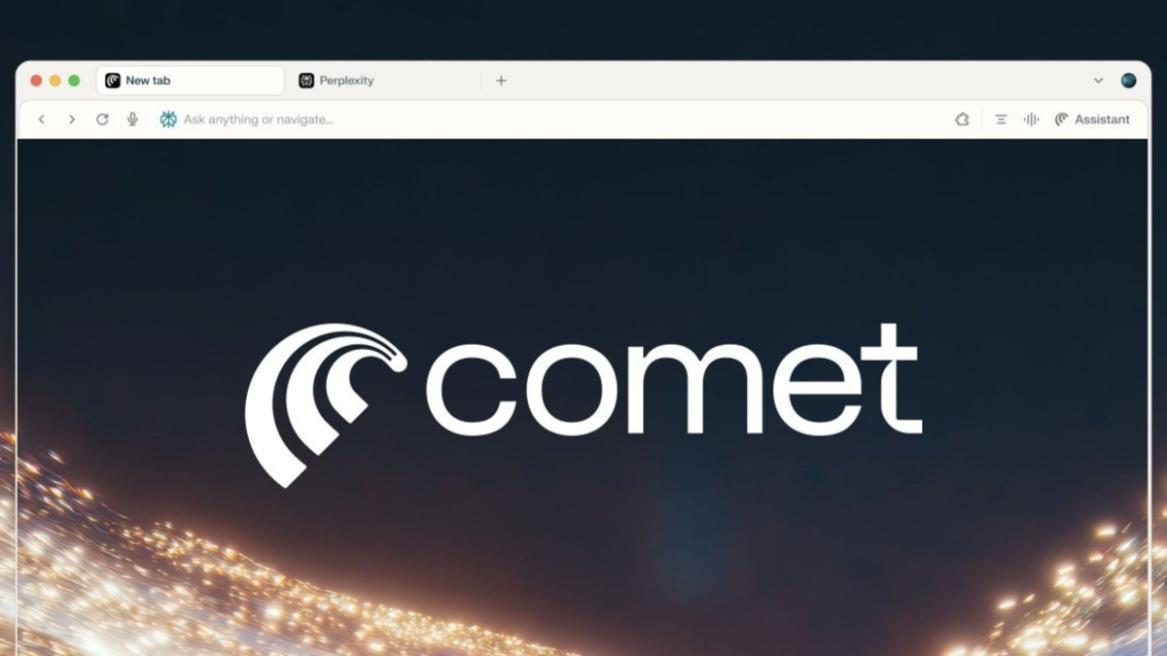Perplexity has unveiled the Comet AI browser, marking a significant step in the integration of AI-assisted web navigation. The rollout begins with Perplexity’s Max plan subscribers, priced at $200 per month, and extends to a waitlist for all other users who want early access. The browser pairs Perplexity as the default search engine with AI-generated summaries of search results, promising a streamlined, AI-enhanced browsing experience from the moment you search. Central to this release is the Comet Assistant, an AI agent embedded within the browser that can observe your open tabs, summarize pages, locate important emails, and manage browser tabs. The combination of search, summarization, and proactive assistance positions Comet as a notable entrant in the AI-first browsing space, where automation and convenience economies are increasingly becoming differentiators for user productivity.
Launch scope, pricing, and access model
Perplexity’s Comet AI browser is rolling out in a phased manner, prioritizing users who subscribe to the company’s Max plan, which commands a premium monthly price of $200. This early access strategy suggests a focus on power users and professionals who demand high levels of AI-assisted productivity as part of their daily browsing and research workflows. For all other users, access is currently gated behind a waitlist, signaling a longer-term deployment plan that can help Perplexity manage demand, refine capabilities, and ensure a stable user experience at scale. The pricing tier implies a premium positioning within the browser market, where AI-assisted features must justify the cost through tangible productivity gains, faster information retrieval, and more efficient online tasks.
The Comet browser differentiates itself by making Perplexity the default search engine, ensuring that AI-generated summaries of search results accompany traditional results. This combination is intended to reduce the time users spend scanning pages and to accelerate insight discovery, especially for complex queries or research-heavy workflows. By coupling Perplexity’s search capabilities with integrated AI summarization, the browser aims to deliver a more efficient information funnel—from query to understanding—than traditional search experiences. The strategy signals a broader push by Perplexity to unify search and AI-powered content processing within a single, streamlined product.
From a user-experience perspective, the staged rollout helps Perplexity collect real-world feedback from early adopters, enabling iterative improvements before a wider public release. The waitlist approach also serves as a soft beta, allowing the company to balance engineering resources with user demand and to calibrate performance across different hardware configurations and operating systems. For prospective users evaluating the value proposition, the Max plan represents a higher-entry-cost investment in AI-assisted browsing, but it comes with the expectation of deeper integrations, more accurate AI summaries, and a more capable AI agent that can take on routine tasks across the browsing session.
As the product scales, potential expansion pathways could include tiered access for teams or organizations, offering collaborative features and centralized administration. The pricing model may be revisited over time to reflect evolving capabilities, performance improvements, or new AI features integrated into the Comet browser. For now, the emphasis remains on delivering a compelling premium experience through a tightly integrated AI-first browsing environment, anchored by Perplexity as the default search engine and enhanced by the Comet Assistant’s action-oriented capabilities.
Comet Assistant: Capabilities, features, and practical workflows
The centerpiece of the Comet browser is the Comet Assistant, an AI agent embedded in the browser’s interface and accessible through a dedicated side panel. This agent is designed to observe the content of your open tabs, offering contextual support as you navigate the web. The assistant can summarize the current webpage, helping users distill essential information quickly without requiring manual scouring of lengthy articles. This capability is particularly valuable for researchers, students, and professionals who routinely evaluate multiple sources for a single topic.
Beyond summarization, Comet Assistant can assist with email triage, which includes scanning emails to identify important messages and surface them for timely attention. This feature can be a significant time saver in fast-paced environments, where important communications can be buried under a flood of notifications. The assistant also integrates with the browser’s tab management, offering suggestions for organizing tabs, consolidating resources, and potentially closing or preserving sessions based on user priorities. In practice, this could translate to a more organized research session where relevant sources remain accessible while distractions are minimized.
One of the more compelling aspects of Comet Assistant is its ability to perform routine tasks on behalf of the user. The AI agent can open websites, enter details, and even complete bookings, acting as a proxy to automate common online interactions. This level of action-oriented capability is reminiscent of specialized agents in other AI platforms, such as OpenAI’s Operator AI, but embedded directly within the browsing experience. For users who frequently need to perform multi-step online tasks—such as booking travel, filling forms, or signing up for services—this feature could meaningfully reduce repetitive manual input and click-through friction.
Comet Assistant’s utility extends to calendar and scheduling awareness. By scanning through emails and integrating with calendar events, the assistant can surface upcoming commitments and remind users of pertinent dates or meeting times. This proactive capability helps ensure that important deadlines and appointments don’t slip through the cracks, enabling users to stay organized across their day. The combination of email triage, calendar awareness, and action-oriented automation positions Comet Assistant as a versatile productivity companion that can handle both information synthesis and task execution.
Access to the AI agent is designed to be intuitive, with the side panel serving as a centralized hub for AI interactions. Users can request summaries, task help, or direct action commands through natural language prompts, making the integration feel seamless rather than disruptive to typical browsing flows. The emphasis on an integrated agent that can read tab content, summarize pages, manage tabs, and take autonomous actions aligns with a broader shift toward AI-driven browsing where the browser can anticipate and execute user needs.
In practical terms, several workflow scenarios demonstrate the value of Comet Assistant. For researchers compiling literature reviews, the agent can summarize numerous articles from search results, compare findings, and organize key points into accessible notes. In a sales or business development context, the agent can rapidly navigate potential suppliers or competitors, fill out relevant forms when booking demonstrations, and set calendar reminders for follow-up tasks. For students, the assistant can summarize course materials, extract critical concepts, and assemble study guides. The breadth of potential use cases highlights how AI-enabled browsing could transform routine online tasks—from information gathering to action execution—within a single, cohesive interface.
The Comet browser’s approach to AI-enabled browsing also raises considerations about privacy, data handling, and user consent. While the assistant’s capability to access tab content and emails can drive productivity, it also underscores the importance of robust privacy controls and transparent data practices. Effective implementations typically require clear user permissions, granular controls over which data is accessible, and easy-to-audit logs of AI actions. As users adopt Comet, they will likely expect detailed explanations of how data is used, stored, and protected, along with options to disable or limit specific AI capabilities when needed. In that sense, the Comet Assistant represents a frontier in browser-based AI that pairs powerful automation with responsible data governance.
Compared to other AI-first browsing efforts, Comet’s differentiator lies in its combination of a default search engine, AI-generated result summaries, and an action-oriented AI agent that can perform tasks across websites. While some competitors are exploring AI copilots in search or passive summarization, Comet emphasizes a more interactive experience. This positions the browser not merely as a search tool but as a practical assistant integrated into daily online activity, capable of moving beyond passive information presentation to proactive task handling.
Market context: competition, trends, and the AI-first browsing landscape
The emergence of Comet as an AI-enabled browser reflects a broader industry trend toward AI-driven productivity overlays in web experiences. In this space, several players are pursuing different approaches to integrating AI into browsing. The Browser Company’s Dia, for example, is pursuing an AI-first browsing experience but, at present, does not offer an action-oriented AI agent. This distinction matters for users who want hands-on automation integrated within their browser—from opening pages and filling forms to scheduling actions—rather than solely improved search results or passive summaries. Perplexity’s approach with Comet aims to differentiate itself by combining actively executable AI capabilities with a familiar browsing environment, anchored by Perplexity’s search and summarization strengths.
The competitive landscape also includes other AI-driven tools and operators that enable automated actions across web tasks. OpenAI’s Operator AI concept, for instance, has inspired the idea of agentic tasks that can navigate websites, complete forms, or perform bookings autonomously. Comet’s implementation takes this concept and embeds it directly into the browser experience, making it accessible as a built-in feature rather than a separate platform. For users who require reliable automation for repetitive tasks, this integration has the potential to become a key productivity lever, provided privacy and reliability considerations are well managed.
From an enterprise and workflow perspective, Comet’s combination of a default search engine, AI-assisted result summarization, and an action-capable AI agent could have meaningful implications for research-heavy teams, sales operations, and knowledge workers. The prospect of reducing time spent on manual data gathering, triaging emails, and completing routine online tasks could translate into measurable productivity gains. However, the premium pricing signals that Perplexity’s target audience may be professionals and teams with a high demand for AI-assisted capabilities and a demonstrated return on investment. As adoption grows, it will be important to observe how the product scales, how security and privacy controls evolve, and how the user experience evolves as more features are added or refined.
For the broader tech ecosystem, Comet’s launch underscores a growing interest in browser-level AI agents that can act with autonomy within the browsing session. This trend aligns with the search-and-assist paradigm where AI does not merely respond to queries but actively participates in the information workflow. If the approach resonates with users, it could push other browser developers to accelerate their own AI-native features, potentially leading to a wave of competition centered on user productivity, seamless integration, and trust in AI actions. The success of this model will hinge on delivering reliable, accurate AI behavior, transparent data practices, and a user experience that makes AI assistance feel natural and non-intrusive.
In evaluating the potential impact on SEO and content discovery, Comet’s integrated AI summaries could influence how users consume search results and how content is extracted for note-taking and study. If AI-generated summaries become a standard expectation in the browser, content creators may need to consider how their material is structured to remain comprehensible even when AI provides condensed insights. This dynamic could shape how information is presented online, encouraging clearer abstracts, structured headings, and more accessible summaries to align with AI-driven consumption patterns. While speculative, such shifts reflect how AI-enabled browsing can influence content strategy and information design across the web.
Availability, platforms, and user onboarding
The Comet browser is currently available for both macOS and Windows platforms, broadening compatibility for a wide range of desktop users. This cross-platform availability ensures that a large portion of the professional and consumer populations can access the AI-enhanced browsing experience without being constrained by an ecosystem-specific limitation. For users who rely on Windows or macOS devices for research, work, or study, the dual-support approach helps maximize potential adoption and reduces barriers to entry.
Users interested in trying Comet can either download the browser directly when access is available or join the waitlist to secure a future slot in the rollout. The waitlist mechanism provides Perplexity with a controlled deployment curve, allowing the company to monitor real-world performance, collect feedback, and iterate on features and usability before a broader release. This approach often yields a more stable user experience as the product matures and scale considerations are addressed across varying hardware configurations and network conditions.
To participate, prospective users should keep an eye on Perplexity’s official communications and follow the onboarding process as outlined by the company. While the specifics of the onboarding flow may evolve, the core steps typically involve creating an account, selecting the Comet browser option, and confirming access through the waitlist or direct download process. As with any premium software, users should also anticipate initial setup considerations—such as acclimating to the AI assistant’s interactions, adjusting privacy preferences, and configuring default search and result presentation settings to match their workflow.
From an implementation standpoint, the Comet browser’s design emphasizes a seamless fusion of search, summarization, and AI-driven actions. This means that users can expect a cohesive experience where AI assistance remains accessible without introducing friction into daily browsing. The side panel for Comet Assistant acts as a dedicated command center, offering quick access to AI-assisted tasks, contextual insights, and workflow automation. The intention is to create a productive browsing environment where AI capabilities feel integrated rather than bolted on as separate features.
Practical implications for users, productivity, and daily work
For heavy researchers, students, and professionals who spend substantial time online, Comet’s AI-driven features could substantially change how information is gathered, processed, and acted upon. The ability to obtain AI-generated summaries of search results saves time, enabling users to quickly identify the most relevant sources and extract critical points without wading through numerous pages. This can accelerate literature reviews, market research, competitive analysis, and academic exploration by reducing cognitive load and enabling faster decision-making.
Email triage and calendar awareness provide additional layers of productivity enhancement. Comet Assistant’s capability to scan emails for important items helps users prioritize actions, respond to time-sensitive messages promptly, and avoid missing critical communications. By synchronizing with calendar events and indicating upcoming commitments, the AI agent helps create a more organized daily workflow, allowing users to allocate time effectively and reduce the risk of scheduling conflicts or missed deadlines.
The action-oriented capabilities—such as opening websites, entering details, and making bookings on behalf of the user—present a new level of automation within a browsing session. This can be especially valuable for tasks that involve repetitive form-filling, appointment scheduling, or multi-step online processes across multiple sites. By performing these actions autonomously, the AI assistant can save significant time and reduce manual effort, enabling users to focus on higher-value activities like analysis, strategy, and creative work. However, this level of automation also underscores the importance of robust safety nets and clear user control to ensure that automated actions align with user intent and preferences.
As with any AI-enabled product, there are considerations around privacy, data usage, and transparency. Users should expect clear explanations of how data is processed, stored, and used to power AI features. Fine-grained controls should be available to limit data access and to disable specific AI actions when users prefer greater privacy or want to minimize data exposure. Trust is a critical factor in the adoption of AI-powered tools; providing transparent governance and user empowerment will be essential to widespread acceptance of Comet’s capabilities.
From an SEO perspective, this article emphasizes the keyword-rich landscape surrounding AI-enhanced browsing. Terms such as “Perplexity Comet AI browser,” “Comet Assistant,” “AI-powered browser,” “AI agent in browser,” and “default search engine Perplexity” are integrated throughout to reinforce discoverability for readers seeking information on AI-enabled browsing experiences. The natural distribution of keywords—through descriptions of features, capabilities, and market context—helps ensure the content remains informative while optimized for search visibility.
Conclusion
Perplexity’s Comet AI browser introduces a bold, AI-augmented browsing experience that places AI-driven efficiency at the core of the user journey. By offering Comet Assistant as an embedded AI agent with tab-aware capabilities, page summarization, email triage, calendar integration, and action-oriented automation, the browser aims to redefine how users search, consume information, and complete online tasks. The initial rollout to Max plan subscribers at $200 per month signals a premium positioning designed for power users who require advanced productivity features and tighter integration with Perplexity’s search and summarization capabilities. The waitlist for other users indicates a measured adoption strategy that prioritizes stability, user feedback, and iterative enhancements as the product scales.
In a broader market context, Comet competes in a space where Dia and other AI-driven browsers are experimenting with AI-first experiences. What differentiates Comet is the combination of a default search engine experience, AI-generated results summaries, and an action-oriented AI assistant capable of performing tasks across websites. As AI-enabled browsing continues to evolve, Comet’s success will hinge on delivering reliable automation, transparent privacy practices, and a seamless user experience that genuinely enhances productivity without compromising trust. For users considering this technology, Comet represents a forward-looking approach to browsing—one that blends search, comprehension, and automation into a single, AI-powered workflow.
If you are evaluating AI-enhanced browsing solutions, consider how Comet’s capabilities align with your daily tasks, whether the Premium Max plan’s price point fits your budget, and how comfortable you are with a browser that actively assists with tasks and content management. As the product matures, ongoing updates, refined AI behavior, and expanded automation possibilities could further redefine how we search the web, manage information, and complete online actions in a more efficient, AI-supported manner.



